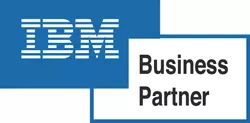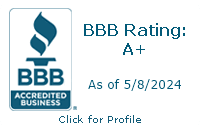We're two months into a new year – how far have you gotten on your business goals for 2024?
A former Business Development Manager once did an interesting analysis. She analyzed when we secured new clients and found February and March were the two months with the largest number of new clients. I wondered what was special about these two months, and it finally dawned on me. For my insight to make sense, let me tell you a few things about how Business Development works at Todd Herman Associates (THA).

Always Be Sowing
Most businesses have some sort of recurring revenue baked into their business model. For example, grocery stores know people will always need food, manufacturers of consumer products can count on customers buying new products when existing ones wear out, and most professional service providers – including CPAs, insurance agents, and investment advisers – can count on a large percentage of recurring fees.
THA is different – we have only a few very small recurring projects. We are a project–based business, so that means – no matter how busy my associates and I might be – I always have to be looking for the NEXT project.
Being a project–based business does have an upside, though. Not every company routinely needs our services, yet given a long enough time frame, most companies WILL need our services. The problem with that? It's virtually impossible to predict when a company will have a need we can fill.
How do I address that problem? I do my best to keep THA top of mind with clients, referral sources, and friends of the firm – in other words, people like you. What have I found to be the BEST way to keep people who might have a need – or know someone who might have a need – thinking about THA? This monthly e–newsletter!
My business development premise is simple – Always Be Sowing. I need to keep as many people who know about THA opening and reading our content. Unless I keep adding new folks to our mailing list and unless I keep coming up with interesting and useful content, they’re not reading and I'm not sowing.
I do not know which of our roughly 2,000 subscribers might have a need THA can solve – or might know someone who has such a need. Yet, given our large number of subscribers, the odds are good there is at least one such person each month.
Even when a reader has a need or knows someone who does, not all will take action. Still, many do take action frequently enough to surface potential projects, which we investigate to see whether there is a need we can meet. Fortunately, enough potential projects have fit our skills, allowing THA to serve clients for over 34 years.
Every month, I do my best to sow good content broadly and thus add value to you, our subscribers – and from you, there WILL come a harvest at some point.
Selling Is Hard – Especially When You Have a Complex Sale
Anyone who has worked in sales will tell you doing selling well requires a lot of work. This is true whether you are selling products or services.
The hardest sale of all? A “complex sale.” A sale is complex if the sales process requires education and nurturing over a long time (6 to 36 months), involving a sophisticated, highly customized solution to a key business issue facing a company. What's being sold can be a product or a service, yet the same business development techniques are used:
- Define your best leads, and focus on quality, not quantity.
- Get crystal clear about your value proposition, so that it can be consistently communicated throughout the marketing and selling processes.
- Define and execute a consistent multi–modal lead generation plan with tactics relevant to your particular business – this will likely be some mix of phone calls, e–mail, online marketing, events, referrals, public relations, website, and the like.
THA definitely has a complex sale, because the time between when we first meet someone who might have a need for our services until they actually have a need and retain us can range from a few days to nearly 10 years.
This makes Always Be Sowing even more important – no matter how well and how consistently I sow, I never know when my harvest will occur.
What's Special About February and March?
February and March are especially good months for harvesting at THA. Why? Most companies have a calendar year–end, or a fiscal year ending near December 31. That means new budget funds are available starting January 1.
Generally, one of two positions will decide to engage THA – the Chief Executive Officer (CEO) or the Chief Financial Officer (CFO). These two positions are generally tasked with many of a company's special projects.
In January, both the CEO and CFO are busy closing out the prior year, and getting things started right for the new year. Typically, the CEOs will finish their tasks first, meaning they will likely be available to sign our engagement letter and get started in February. The CFOs still have to get the annual audit completed, then work with tax accountants to prepare and file the company tax returns – thus, they will most likely be available after March 15, the due date for corporate tax returns.
There's another thing to keep in mind about February and March. Even though that's when companies will sign on the dotted line and start working with us, these companies will likely have met with us a few months prior to share their needs and ask us to prepare an engagement letter describing how we will meet these. Thus, they probably have already budgeted for our work.
Finally, the people who begin working with us in February or March have one thing in common – they know they need to get something done, and they want to start taking action as soon as possible.
Start Taking Action!
Do you have a business project or goal you need to tackle, yet are not sure how to approach it? Or perhaps you know someone in that situation. If so, let's talk. It's easy to contact me – just reply to our e–newsletter or contact me through the “Let's Connect” pop–up box on our website.
There's an old saying to keep in mind – “The best time to plant an apple tree was 20 years ago. The second best time is now.” Always remember – now is always the best time to start improving your business.
Sincerely,

Todd L. Herman






